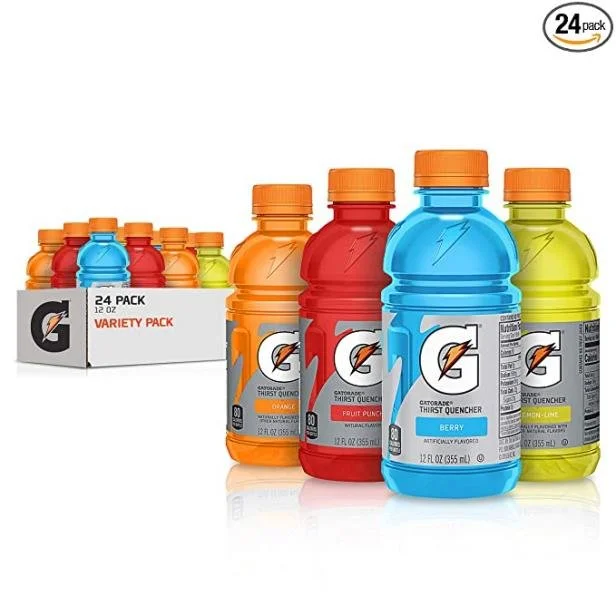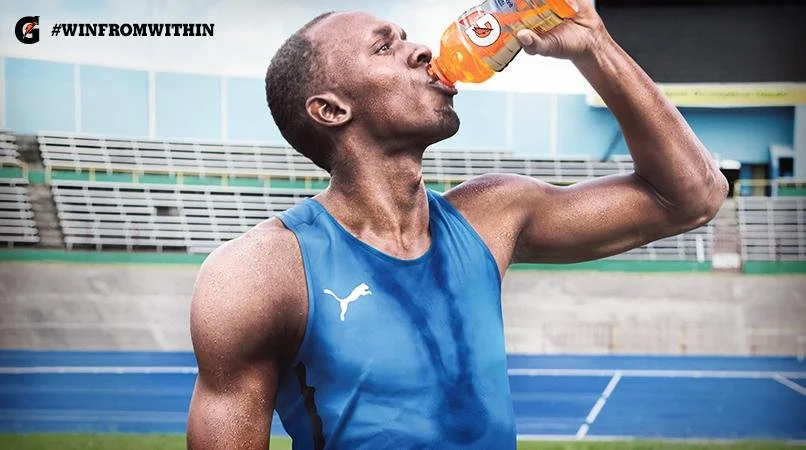How Healthy Are Sports Drinks?
Hydration can be accommodated for everyone, particularly athletes, through numerous drinks. This includes sports drinks like Gatorade, Prime, and Powerade– all sold in various appealing flavors. But are these flashy drinks truly serving their purpose to keep athletes at the top of their level? Clinical dietitian at Houston Methodist Emma Willingham states that "the primary purpose of a sports drink is to help improve your physical performance by benefiting your hydration status and energy levels during exercise". This article will elaborate on the function, advantages, and disadvantages of sports drinks.
What Are Sports Drinks Mainly Consisted of?
Water: The primary component, crucial for hydration.
Electrolytes: Sodium, potassium, and magnesium, which help maintain fluid balance and prevent muscle cramps.
Carbohydrates: Sugars such as glucose, fructose, and sucrose, providing a quick source of energy.
Sports drinks have numerous benefits for athletes, as they replenish valuable nutrients that are lost during physical activity; Including:
Hydration:
Sports drinks are primarily water, which is essential for replacing the fluid lost through sweat during exercise. Proper hydration helps maintain blood volume, regulate body temperature, and support cardiovascular function. The water in sports drinks helps restore the body's fluid balance, which is critical for maintaining performance and preventing dehydration.
Electrolyte Replacement:
Electrolytes are minerals that play a crucial role in muscle function, nerve signaling, and fluid balance. Sodium and potassium are the most commonly depleted during exercise. Sports drinks provide a convenient way to replenish these, potentially preventing cramps, fatigue, and other symptoms associated with electrolyte imbalance.
Energy Supply:
Carbohydrates in sports drinks provide an immediate source of energy. During long or high-intensity workouts, maintaining blood glucose levels can sustain performance and delay fatigue. This is especially important for endurance events or sports requiring sustained effort.
Drawbacks of Sports Drinks:
Sugar Content: Drinks contain high levels of sugar, which can contribute to weight gain, and can include consuming more calories than expended, especially if not offset by exercise.
Sometimes Not Needed: For most people engaging in moderate exercise or short-duration activities, plain water is sufficient for hydration. The extra calories and electrolytes in sports drinks might not be necessary and can be counterproductive if not balanced with adequate physical activity.
Cost: Sports drinks can be more expensive than water and may not always be readily available. For athletes on a budget or in areas where sports drinks are not easily accessible, alternatives like water and whole foods may be more practical.
When Are Sports Drinks Necessary?
Prolonged Endurance Activities: Sports drinks are most beneficial during endurance activities lasting longer than an hour, such as marathons, long workouts, or long-distance cycling. They help maintain hydration, replace electrolytes, and provide energy.
High-Intensity Training: For athletes engaged in high-intensity interval training (HIIT) or competitive sports with prolonged and intense physical exertion, sports drinks can help sustain performance and aid recovery.
Extreme Conditions: In high temperature environments or situations where excessive sweating occurs, sports drinks can be crucial in preventing dehydration and electrolyte imbalances.
Conclusion:
Sports drinks can be a valuable tool for athletes, particularly those involved in long or high-intensity activities. They help maintain hydration, replenish electrolytes, and provide a quick energy source. However, for most light exercises or activities of short duration, regular water is often sufficient. Athletes should consider their individual needs, the intensity and duration of their exercise, and the conditions in which they train before choosing to consume sports drinks regularly. Moderation and context are crucial, as understanding when and how to use sports drinks can help athletes maximize their benefits while minimizing potential drawbacks.
Sources:
Jackson, Eric. “Is There Such a Thing as a Healthy Sports Drink?” UMMS Health, 2 Oct. 2021, health.umms.org/2021/08/17/sports-drinks/.
McCallum, Katie. “Sports Drinks vs. Water: When Is One a Better Option over the Other?” When (& Why) to Drink a Sports Drink| Houston Methodist, Houston Methodist, www.houstonmethodist.org/blog/articles/2021/jun/sports-drinks-vs-water-when-is-one-a-better-option-over-the-other/. Accessed 8 July 2024.
Muñoz-Urtubia, Nicolás, et al. “Healthy Behavior and Sports Drinks: A Systematic Review.” Nutrients, U.S. National Library of Medicine, 27 June 2023, www.ncbi.nlm.nih.gov/pmc/articles/PMC10346316/.
“Sports Drinks.” The Nutrition Source, 9 May 2024, nutritionsource.hsph.harvard.edu/sports-drinks/.


